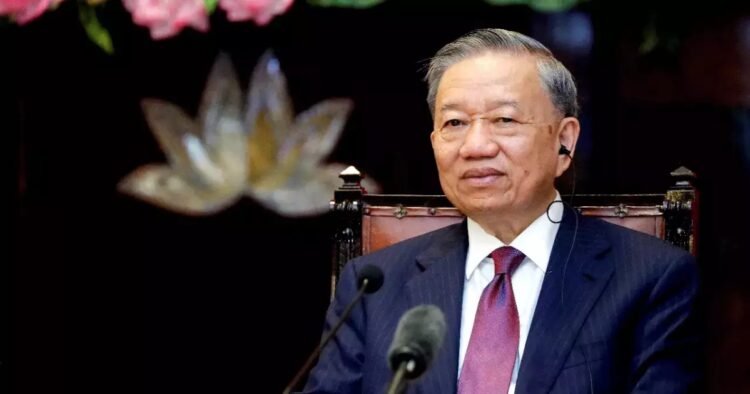To Lam, Vietnam’s President, has now taken on the role of General Secretary of the Communist Party of Vietnam, the top leadership position in the country. His promotion comes as part of an ongoing anti-corruption drive and follows the death of the previous General Secretary, Nguyen Phu Trong, who passed away two weeks ago.
In his first speech as General Secretary, Lam promised to intensify the anti-corruption campaign that has already affected thousands of people, including high-ranking officials and senior business leaders. “(I will) continue to speed up anti-corruption … regardless of who the person is,” Lam stated at a press conference. This commitment is expected to strengthen his authority and could further unsettle Vietnam’s political elite.
Lam, 66, was born in 1957 and has a long history in Vietnam’s government. He previously led the Ministry of Public Security, a key role responsible for monitoring dissent and controlling political activism in the country. His experience and recent appointment as president, a largely ceremonial role, have made him a well-known figure in Vietnam’s leadership. However, how he will manage both roles as General Secretary and President remains uncertain.
Analysts believe Lam’s rise to power signifies a “total victory” and predict that Vietnam’s policies will remain stable. “He is an extremely strong statesman, supported by a ministry at the heart of the Vietnamese political project,” said Benoit de Treglode, research director at the Institute for Strategic Research at France’s military academy, according to AFP.
ALSO READ: “India, Vietnam Agree To Strengthen Comprehensive Strategic Partnership In All Areas”
Lam’s promotion continues the relentless anti-corruption campaign known as the “blazing furnace.” While this campaign has been popular with the public, it has also caused disruptions in everyday transactions and increased fears among those targeted. The campaign has even affected Vietnam’s global reputation, sparking debates about the future stability of its successful export-driven economy.
As Lam assumes leadership, he faces challenges and scrutiny from both domestic and international observers. His past repressive stance towards dissidents and the potential for further consolidation of power suggest that Vietnam’s political future will be closely monitored in the coming months.

















Comments